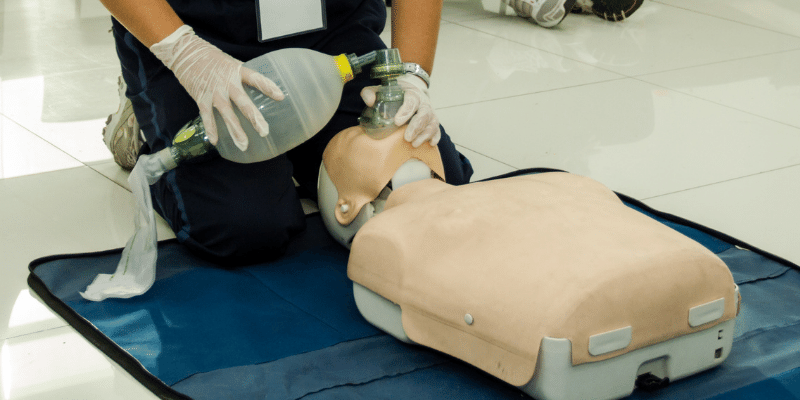
The Nursing & Midwifery Council (NMC) set criteria for education, training, conduct and performance to ensure nursing professionals maintain their expertise and adhere to professional standards. These standards of proficiency outline the skills, knowledge and attributes that are needed in order to practice safely and effectively. It is vital nurses are familiar with these standards and how they relate to their own specific practice. These standards should be used and reflected on regularly by nurses and line managers to help with planning Continuing Professional Development (CPD) activities and revalidation.
What are the NMC standards of proficiency for Nurses?

The NMC standards of proficiency for registered nurses comprise of 7 platforms:
1. Being an accountable professional
Nurses should always act professionally, be accountable for their practice and always operate in the best interests of individuals. Nurses should aim to always learn, develop and reflect on their practice, staying up to date on new and developing advancements in care.
2. Promoting health and preventing ill health
Nurses should be actively involved in the prevention and treatment of disease and illness. They should promote and empower individuals to help make educated, informed decisions about how to manage their health in order to enhance their quality of life and health outcomes.
3. Assessing needs and planning care
Nurses should collaborate with individuals to create person-centred care plans that reflect their specific needs and circumstances. Individuals mental, physical, cognitive, behavioural, social and spiritual needs should always be considered.
4. Providing and evaluating care
Nurses should regularly collaborate with people, families and caregivers to assess if care is successful and whether the goals of care and treatment have been fulfilled.
5. Leading and managing nursing care and working in teams
Nurses should delegate and monitor care safely and responsibly in effective collaboration with colleagues from all disciplines. They should be role models and strong leaders for excellent practice in care delivery and take an active and equal position in the multidisciplinary team, working and communicating well with others.
6. Improving safety and quality of care
Nurses should help to monitor and improve the quality of the care and treatment individuals receive. Nurses should regularly assess risks to safety and take action to manage these risks and always put patients interests, needs and preferences first in order to enhance health outcomes and experience.
7. Coordinating care
Nurses should be aware of local and national policies to assist them in improving operations. Nurses should take the lead in coordinating and managing individuals complex nursing and integrated care requirements.
Why are the NMC standards important to CPD and Nursing Revalidation?

The guiding principles of the NMC standards emphasise the necessity for individuals to regularly reflect on their learning requirements in order to practice safely and provide high quality care. This includes making sure that they are up to date with evidence-based practice and guidance.
When planning for CPD and revalidation, nurses should utilise the NMC standards of proficiency to identify any knowledge, training and skill gaps they may have as well as to establish any ongoing professional development requirements.
What are the NMC requirements for CPD and Nursing Revalidation?

The necessity to engage in CPD for registration as a nurse is entrenched in the NMC code of conduct and is required for revalidation and continuing to practice. As part of the revalidation process, nursing professionals must complete 35 hours of appropriate CPD in the previous three years since their registration was updated or they entered the register.
It is up to the individual to decide what CPD they feel is most beneficial to their specific practice. However, at least 20 of these 35 hours must incorporate interactive or participatory learning. A learning activity that incorporates contact with one or more other professionals is considered participatory learning. This can involve training in a real setting as well as virtual training, attending a conference or participating in a workshop. Types of CPD that count as individual learning include E-Learning training courses or self-directed study.
It is important to retain an accurate record of any learning for revalidation. This includes the method of CPD, the dates and hours the activity was completed, an overview of the topic and how it relates to practice, which section of the NMC code the activity relates to and proof that the CPD activity has been completed.
Nurses can use the CPD log template which is available to download from the NMC website to help keep track of CPD progress. This should also be used to reflect on their learning activities and how it has improved their practice.
How Health Academy can help with CPD and Nursing Revalidation

At Health Academy, we want individuals to feel empowered and take ownership of their learning in order to achieve the proficiencies and outcomes needed for their professional development.
From self directed E-learning courses to workshops and face to face training, we have a variety of training courses. These courses can be used towards CPD hours for revalidation to improve and develop upon practice and help ensure nursing professionals meet the NMC standards of proficiency.
For further information on the range of courses we have available please click here.
For more details on our face-to-face and virtual courses which can count towards participatory learning please click here.



